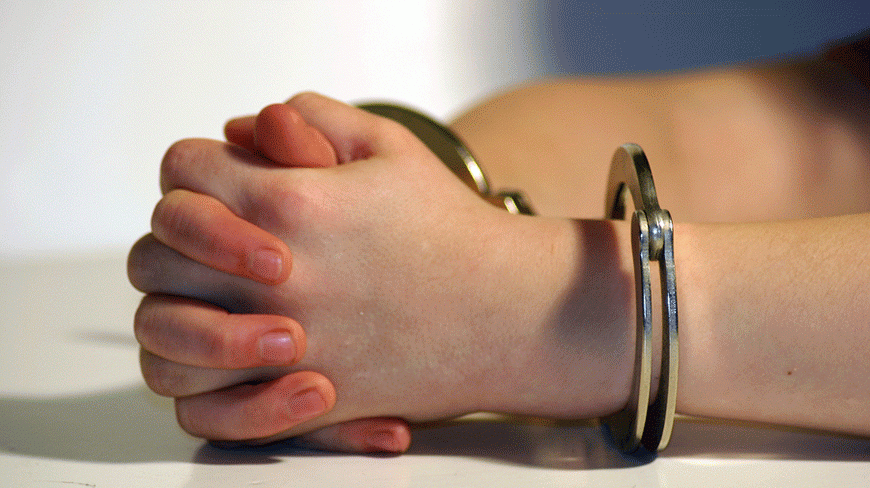The act provides that at least one ‘Children’s Court’ is to be established in every district headquarter and in every metropolitan area
Under the legal framework of Bangladesh, children and adolescent offenders, are treated differently than adult offenders. For juvenile offenders the law is more flexible and there is provision of a correctional home instead of sending them to jail. One of the reasons behind the commencement of offences by children and adolescents is poverty. In urban areas, slum and street children are engaged in theft, murder, drug-peddling, hijacking, etc. Though, under the Vagrancy Act, the police has the power to detain such children, doing so is considered the exact opposite of the right to liberty.
The Children Act 2013 is the principal law for the protection of children. The new law provides that, for the purpose of the act and for the trial of offences thereunder, at least one court is to be established in every district headquarter and in every metropolitan area which shall be called “Children’s Court.” Section 17 of the act provides that the Children’s Court shall have the exclusive jurisdiction to try a case where a child in conflict with the law or a child in contact with the law is involved under any law.
According to section 2(4) of the act, a child in contact with the law includes a child who is a victim of or a witness to an offence under any existing law. In Section 4 of the Children Act, a child is defined as anyone up to the age of 18 years. The act specifically provides that no child below the age of 9 years be arrested under any circumstance. The Children’s Court has the responsibility of the assessment and determination of the age of the child and if it appears to the court that he is not a child, his age is to be determined upon enquiry and a hearing.
The Children Act, in conformity with the international instruments, introduces that it is the right of the child to participate in person at all stages of the trial. Keeping the child in safe custody during the pendency of any trial shall be considered as a last resort and for the shortest possible time. The act also says that notwithstanding anything contained in any other law or the Code of Criminal Procedure, the court may release the child on bail with or without surety, whether or not the offence alleged is bailable or non-bailable. In cases where the child is not released on bail, the Children’s Court must give its reasons for refusing bail.
When passing any order, the Children’s Court shall consider the child’s age and gender; physical and mental condition; qualification and level of education; social, cultural and ethnic background, and other ancillary factors that are expedient or are required to be taken into consideration in the best interest of the child. The new law also provides a time frame within which to conclude the trial. The Children’s Court shall complete the trial within 360 days from the day of the child’s first appearance before the court. However, by giving practical reasons the Children’s court may extend the deadline by another 60 days.
The new act specifically provides that no child shall be sentenced to death, imprisonment for life, or imprisonment. But when a child is found to have committed an offence of serious nature and the punishment provided by this law is not sufficient, or if the court is satisfied that the child is so unruly that he cannot be sent to a certified institute, or that any other alternative methods are not suitable in the case, then the court may sentence the child to imprisonment for a period no less than three and not more than 10 years. When a child is sentenced to imprisonment, he or she shall not be allowed to associate with any adults in prison.
The new law incorporates the provision for settlement of dispute where a child has committed any offence of lesser gravity. In such a case, the court may direct the probation officer to take steps in order to settle the dispute between the victim and the child who has committed the offence. According to section 38 of the act, the court may order any person found guilty of an offence committed against a child victim to pay compensation to the child on an application by the child or the child’s parents. Also, the court may suo motu order such compensation to be paid by the convict or offender.
The act provides that under any circumstances no child below the age of nine years be arrested. However, no time frame has been specified for the conclusion of investigation. Considering the best interests of the child, the Children’s Court may pass order to ensure the safety and confidentiality of the child and to maintain secrecy of all information regarding the child so that the child’s identity may not be disclosed. It is interesting to note that the court may not use the terms “offender,” “convicted,” or “sentenced,” in relation to children while passing an order, instead, the terms “a person found guilty of an offence,” “a finding of guilt,” or “an order made upon such findings,” or such other terms as the court deems appropriate may be used.
Under the new act, the government is obliged to establish and maintain a necessary number of child development centres for both male and female children for the accommodation, reformation, and development of children who are detained or are undergoing trial. The government shall also ensure the minimum standards for proper care of the children staying in the institutes.
Source: Dhaka Tribune










